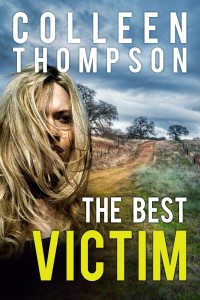How to Judge a Writing Contest
The chapter president phones you, frantic for an extra judge. “We’re just one short,” she pleads. “You’ve entered lots of contests. You’ve done plenty of critiquing. Please.”
Stupidly, you acquiesce. All right, it wasn’t really stupid, but it feels that way. You know the writers who entered paid for an informed opinion, neither blazing condemnation nor glowing praise. (Technically, they all, like everyone, fantasize about the glowing praise part. But if they received it from everybody, they’d feel suspicious and dissatisfied. I think.) You’re not certain where to start.
First of all, relax. You wouldn’t have been asked to judge unless someone felt you were well read in your genre and had a good editorial eye. Perhaps you’re a veteran of contests and critique groups. Perhaps you have some publishing credits to your name. Hopefully, you study books and articles to help you learn your craft. All of these qualify you to judge contests if you’ll remember a few simple guidelines.
At a teachers’ workshop long ago, I learned the adage, “Two to glow, one to grow.” In other words, start with praise before you criticize. Those are words to live by, whether you’re dealing with children or adults. People will listen much more attentively to your suggestions if they believe you have the native intelligence to see what they do well. Sometimes, depending on the contest entry, you’ll have to look hard, especially when glaring grammatical or point or view errors make your red pen want to hemorrhage all over the manuscript. Look hard, then. That’s what the writer paid for, after all. Usually you’ll find some spark the author has, a gift for sparkling similes, a facility with dialogue, a charming heroine, a clever hook, or a unique twist on a well-loved, perhaps well worn plot. Compliment the entrant on what she is doing well.
Next, remember just who owns this story. The writer does, of course. Don’t insist the entry must be “fixed” your way, even if you can think of something “guaranteed” to make it a bestseller. Instead, point out places you became confused or you felt could have been more effective. Sheathe your daggers in terms such as, “You might want to consider…” or “Could you clarify…?” Many times, it’s better if the writer comes to her own possibly unique conclusion on how to correct the problem instead of relying on others to tell her what to do. Have you ever seen a manuscript that’s been overhauled by an over-eager writer trying to please too many critique group members? Often, it’s a mealy-mouthed Story-By-Committee, no longer satisfying to anyone, especially the writer.
Last and most importantly, don’t feel you have to tell an author, especially one who appears to be at the beginning of her “apprenticeship,” everything you know or feel about the entry. People can only absorb and set goals to change a few things at a time. Think about it this way. If someone suggested you try to make two or maybe three changes, especially after offering some insightful compliments, would you be likely to try them? Probably. How about, instead, if someone offered seventeen suggestions ? or even twenty-five? I don’t know about you, but the latter would make me want to crumple up that judge’s sheet. I’d just think that old grouch hated my writing, and I’d learn nothing at all. A less confident writer, perhaps one on her first entry, might simply quit writing out of hopelessness.
Most of us judge contests to share what we have learned, not psychically crush our competition. If you’ll remember how it feels to read those scores and comments, you can help other writers hone their craft with appropriate praise, gentle suggestions, and a few goals for each entrant. Try it. You’ll be surprised what you learn, too.
This piece first appeared in The Lone Star Galley.


